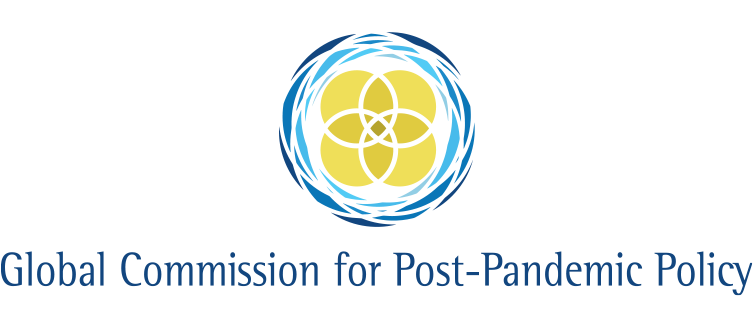Provincetown and “othering”
Argument
By Pardis Sabeti, Commissioner, GCPPP, August 4th 2021
We are scared, we are tired, we want to see our friends, and we don’t want to think this could be our problem. The outbreak has been hard on all of us. But by othering we make the year even harder on each other, bringing stigma where there should not be any. And then we overlook facts that could help us.
This article was originally written in the form of a long Twitter thread, in response to having been asked the same question many times in many ways — “Is the Provincetown outbreak due to this being a largely LGBTQ+ community?” My answer was, and is, that it is NOT. Yet that COVID outbreak, which came out of the July 4th holiday gatherings on Cape Cod in Massachusetts, raised an important issue, and recurrent danger that occurs amidst outbreaks, which is why I have adapted the Twitter thread for this article: that of “othering”, treating viral spread in another group of people as something that those people somehow brought on themselves, and as a result letting our guard down against the real, looming threat.
The questioning came as both direct attacks and Tepic enquiries like “You know Provincetown is, well, a special community, could this be more about how they socially interact?” Or “There is a lot of HIV in the gay community, could they just be more immunocompromised?”
To be clear: the reality is that the Delta variant is highly transmissible and breaks through our vaccines, and what happened in Provincetown is happening all across the US and the world right now, and could be in your backyard.
But people had picked up on the fact that 85% of cases were males, and on the fact that there were LGBTQ+ events in Provincetown that weekend. While that number is notable, and should be investigated further, what should be taken into context is that this number is the proportion of reported cases in the area at the time. More male individuals in town that week affects numbers, regardless of those individuals’ activities.
A similar gender imbalance in COVID cases happened at the Euro football tournament in the UK. Men were getting infected in gatherings outside and at very crowded pubs. The answer wasn’t to blame folks for doing something public health experts approved and okayed, but instead to take the new information and adjust going forward.
What was special about Provincetown was not its outbreak but its rapid detection and unprecedented tracing, thanks to the Provincetown community and government as well as the Massachusetts Department of Public Health (MADPH), the Broad Institute of MIT and Harvard, (where I work), the non-profit Partners in Health and others.
The Provincetown LGBTQ+ community is exceptionally public-health and community oriented. As the outbreak unfolded they reached out to each other on social media and through private chats to exchange information and their diagnoses, encourage each other to get tested, and support each other throughout the process. It is a model that I wish we all followed and that enabled the Centers for Disease Control and the MADPH to obtain real-time information actionable for the entire country.
And the July 4th weekend in Provincetown this year was marked not by intense revelry but by RAIN, driving people indoors, into restaurants and shops during the day. The notable fact is that 42% of the breakthrough cases were residents of Barnstable County, that is, locals.
The population of Provincetown is 3,000, with up to 60,000 overnight visitors per week. This means that residents/workers may have up to a 10 times higher risk of exposure than others. Thanks to a labor shortage, residents can work 3-4 jobs, often in dense poorly ventilated places. They are dosed by a stream of travellers while working in a shop during the day, serving food in the afternoon and bartending in a club at night. That all likely underlies their heightened risk.
So far, the investigation has reported that just 30 of the cases, or 6%, were among people with confirmed HIV infections. None of these were hospitalised. So immunocompromised status also does not explain the outbreak.
Contrary to what has been widely said, the CDC did not change its mandates based on the Provincetown event. This was an exceptionally well documented early outbreak of Delta in the US, and they took it in the context of other data that was coming together at the same time across the country.
See for example this important study from our terrific colleagues at the University of Wisconsin-Madison with a different population demographic and set of circumstances, and similar conclusions.
I expect that over the coming weeks you will see many reports of rising case-counts, and similarly high viral loads in vaccinated and unvaccinated individuals.
What the preliminary data are also showing, though, is that the viral loads drop far more quickly in vaccinated individuals, meaning there are likely fewer days they can transmit, and they are greatly protected from severe infection.
So there is reason to be hopeful, but also reason to stay vigilant for a little longer, to protect the most vulnerable amongst us, including children under 12 who cannot be vaccinated, and who could be at greater risk as the virus continues to mutate.
The danger of othering
I understand that it is natural to want to think this is an outbreak that only affects others. We are scared, we are tired, we want to see our friends, and we don’t want to think this could be our problem. The outbreak has been hard on all of us.
But by othering we make the year even harder on each other, bringing stigma where there should not be any. And then we overlook facts that could help us.
If we had paid closer attention to dispatches from India in early May, we would have seen they were reporting vaccinated individuals falling to the disease, and that once one person in a household gets infected, the rest of the household almost always falls ill. Instead, we bothered India as well. “They don’t have good healthcare.” “They don’t have vaccines.” “They don’t have sanitation.” Those are just many different ways to say, this is YOUR problem. We have done the same dance in every outbreak I have witnessed. And we have always paid the price.
The next time you hear a dispatch, from any group anywhere around the world, please start with empathy, curiosity and kindness. It is not just the human thing to do, but the smart one.




 Fateme Alaie, Unsplash
Fateme Alaie, Unsplash



